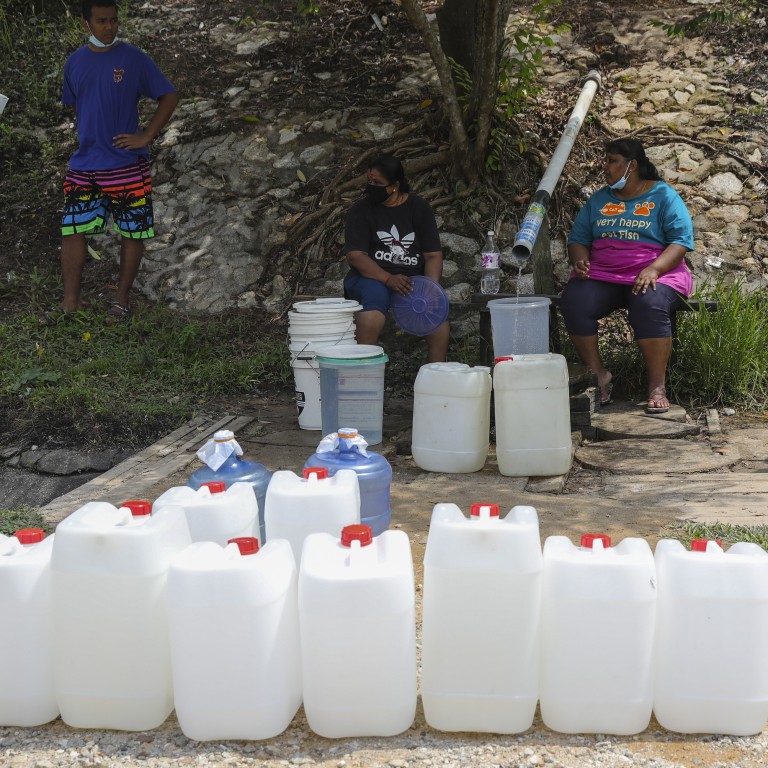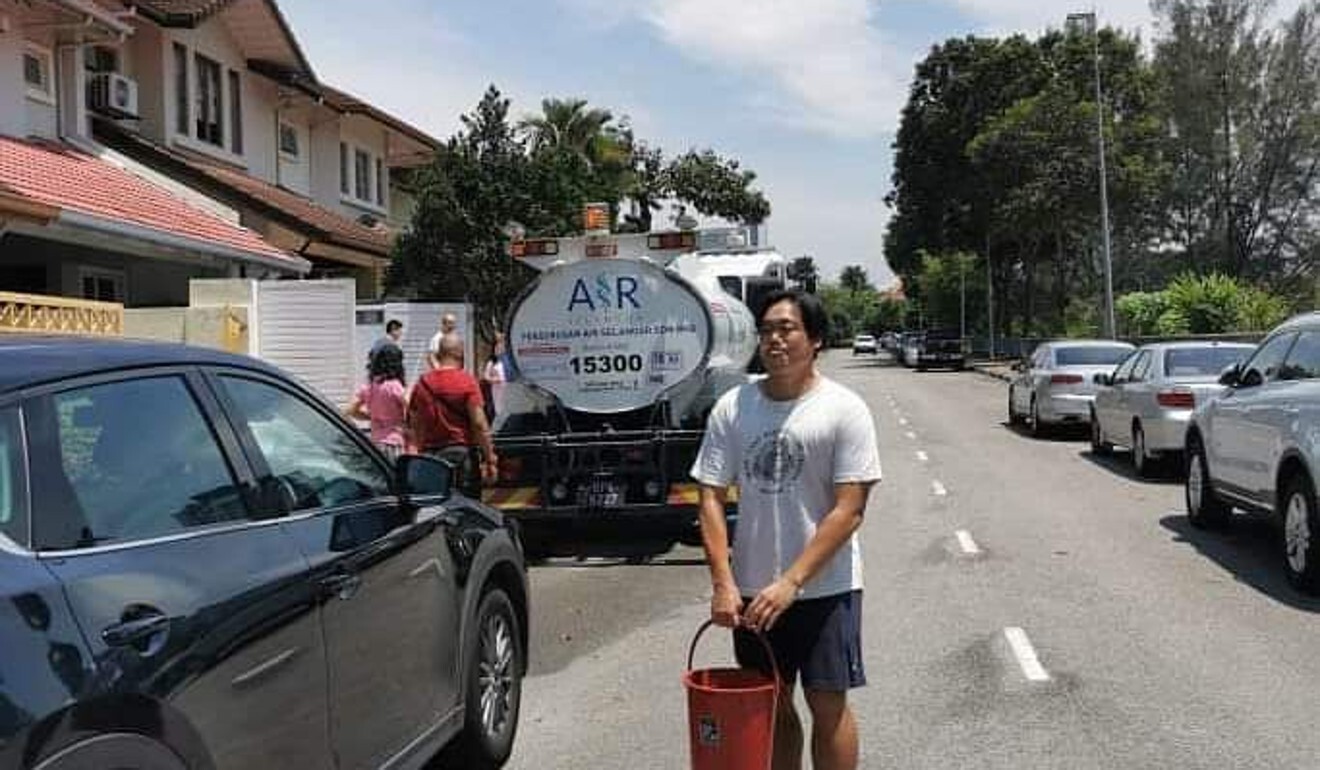
Malaysia water disruptions rankle amid coronavirus spike
- Despite having an abundance of water, disruptions to Malaysia’s supplies are relatively frequent – even in the country’s wealthiest states
- Causes include a lack of maintenance, pollution and contamination incidents, interstate disagreements and poor collection methods
Despite having an abundance of water, disruptions to Malaysia’s supplies are relatively frequent thanks to a lack of maintenance, pollution and contamination incidents, interstate disagreements and poor collection methods.
Compounding the problem is the perception that river polluters – mostly factories – are not being properly punished for negligence.
Coronavirus Malaysia: more heat on Muhyiddin over quarantine flap
“Currently, sentences range from fines to jail time,” said lawyer Yudistra Darma Dorai, who has acted for waste processing companies. “We have a problem with sessions courts throughout the nation meting out very disparate sentences when it comes to environmental offences – sometimes it's a slap on the wrist, sometimes the book is thrown at the polluters.”
While sentencing “does take into account mitigation and of course the individual facts of the case”, Yudistra said he suspects some manufacturing companies “feel more relaxed about these crimes because there is the perception they may get away with it with just a slap on the wrist”.
Sometimes, he said, companies with so-called scheduled waste that falls under environmental quality regulations would not go through the proper processes and instead hand it to third-party processing companies licensed by the Environment Department – which he said had to “be more consistent” and work with companies when using its enforcement powers.

Pollution in water sources – often stemming from factories, some of which are unlicensed – is a major cause of supply disruptions.
Other causes include burst pipes, with state-owned Air Selangor reporting 2,787 incidents in 2019 – resulting in almost 29 per cent of the water it supplied being lost before reaching the end user.
Ong Yu Jian, a civil litigator and state resident, said the government does not do enough to hold the company accountable and should “either open up water supply and management to the free market or make Air Selangor accountable”.
The company is the sole water provider for Selangor as well as the surrounding federal territories of Kuala Lumpur and Putrajaya – serving around 8.4 million consumers – and although other federal and state-run agencies play a role in water cleanliness, it remains the single “holistic licensee” for the extraction, treatment, and distribution of water.
In Malaysia, a toxic river haunts sick children
“Any disruption to the quality of water or supply should come with hefty penalties or fines, and possibly prosecution against the board of directors. Once this is done, we’ll see uninterrupted flow of water so clean that Acqua Panna can come bottle it straight from our taps,” said Ong.
Ong said he experienced four “dry days” during the most recent supply disruptions, with the water being cut twice for two days each time.
“This year alone we have been affected four times. The longest one was in September where I had to check my family into a hotel for the weekend just to be able to shower properly. I even had to extend my stay when the water was cut again after being restored for a few hours,” he said.
According to local media, the state government has since identified the polluter causing the service disruptions – a repeat offender – and fined it 60,000 ringgit (US$14,430).

Last month, the National Water Services Commission urged local authorities to cancel the licences of factories responsible for water pollution rather than just levying fines.
“Still waiting for Air Selangor top management to resign and take accountability for the continuous water cut that disrupts the life of so many,” said one user on Twitter, while former Selangor government worker Faekah Husin tweeted at the nation’s top health official asking “how to observe hygiene when we have no water. Some more [partial lockdown] no inter district [travel], some large families cannot travel to get water”.
Meanwhile, small- and medium-sized restaurants and other eateries – already hit hard economically by the coronavirus pandemic and accompanying a months-long lockdown – have been grappling with unannounced water disruptions for years.
Chinese coffee shop owner Keu Kok Meng said that he had experienced two unannounced disruptions this year that required him to close his premises.
“We can’t use water from a storage tank, we must use direct water from the main supply,” he said. “So at least if there is an announcement we can prepare – collect a lot of water in big pails, inform our customers that there is no coffee or tea, just bottled or canned drinks, so business can still go on.”
Keu said that water woes have been a perennial problem in the state, estimating that last year saw “more than five” unannounced disruptions because of burst water pipes.
“To top it off, people are now more far conscious about hygiene due to the pandemic, so that adds to the national headache – everyone is trying to stay clean and then the water is cut!”

